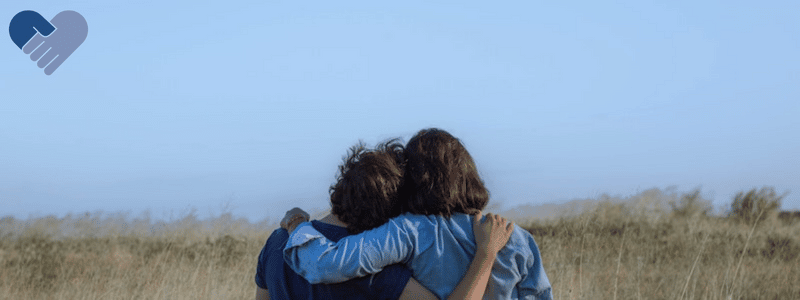Search by category, archive or keyword

If alcohol were the only problem, families would most likely not be as affected as they are. There would be no treatment centers and no addiction counselors. We could just lock them all in a room with medical supervision for 5-7 days when they are drinking too much, let them out, and all would be well.
The problem with alcohol use is the behaviors that drive it and the behaviors that destroy those they love and who love them. We often give our loved ones the benefit of the doubt when it comes to troubling and potentially addictive behaviors. At some point in time, it is important to acknowledge the behaviors of an alcoholic and recognize that it may be time for a change.
If you believe your family member or loved one may be suffering from alcoholism or alcohol abuse, it is helpful first to seek professional help. A good first step is understanding the behaviors, what they are and why.
What to look for: Behaviors of an Alcoholic
Some behaviors of alcoholism are difficult to recognize as they develop in someone you interact with often. Things that are acceptable infrequently become more common, or certain troubling behaviors become the norm before you realize it. Things like these include:
Controlled & Uncontrolled Drinking: Alcoholics usually follow patterns of controlled and uncontrolled drinking. In periods of controlled drinking, an alcoholic limits their alcohol intake to just enough throughout the day to keep their alcohol withdrawal symptoms at bay.
Some periods of controlled drinking may last for up to 3-5 days, in which the individual drinks no alcohol at all. In periods of uncontrolled drinking, an alcoholic will binge drink (drink until they blackout or pass out) or go on a bender (several days of sustained heavy drinking). When they are not drinking, they tend to be restless, irritable, miserable, and discontent. Remove the alcohol and the behaviors that drive the alcohol use come through.
Constant Fixation on Alcohol: An even stronger warning that someone is chemically dependent on a substance is if they are consistently making plans around it. This could be constantly meeting at bars, making sure that there is constantly liquor stocked “just in case,” or asking about the alcohol that will be available in certain social situations.
Patterns like this should immediately raise flags about a dependency on alcohol. Alcoholism is all about anxiety, and the fear of not having alcohol available if needed can cause a lot of anxiety in the individual. If an individual needs to have alcohol around and not necessarily drink it, this is a sign of an unhealthy relationship with alcohol and underlying alcohol dependence.
Lack of Motivation and Priorities: One of the most noticeable personality changes in someone who abuses alcohol will be a decline in their performance at work or school while making frequent excuses for their lapses. Cyclical failures due to either being drunk, hung-over, or having withdrawals will perpetuate these.
Additionally, familial neglect, relationship stress, and self-harm can also manifest as a result. It isn’t that the alcoholic doesn’t care about their loved ones and responsibilities, it is that the weight of those things is too great under the even greater weight of managing their addiction.

Mood Swings: You may notice your family member or loved one switching from subdued to upset or perhaps acting aggressively and erratically. This is because alcohol withdrawals cause mood swings and can also be caused by decreased inhibitions caused by alcohol use.
Exacerbating things further, alcohol use disorder is prone to bringing out underlying mental health issues, including anxiety or bipolar disorder. Dual Diagnosis addiction can have significant long-term effects and warrants professional attention.
Financial Struggles: Alcohol addiction is financially debilitating; outside of the money spent on alcohol, the side effects of dependency can create other financial drains, such as legal problems, lost income, and engaging in risky financial decisions like gambling. Similarly, alcohol may affect performance or attendance at work, and that can lead to loss of employment.
If you see signs of someone drinking excessively while simultaneously experiencing unusual financial troubles, this should be a significant warning flag.
Any of these behaviors can be viewed as a warning that your loved one might need your support, and in combination, they can be clear signals. We suggest consulting a professional interventionist when inquiring about appropriate treatment plans.
Assessment of the alcohol user’s needs is part of the intervention planning in collaboration with the family members of the alcoholic.
How Alcohol Use Disorder Affects Families
Alcoholism is often referred to as a family disease, as it typically affects more people than just the individual with the alcohol use disorder.
Addiction can happen to any individual or family regardless of their background, and while everyone’s experiences will affect how they address the concerns, there are some common themes.
Alcohol use disorders almost always have a significant effect on an individual’s romantic relationship. Studies have shown that husbands and wives drink together in similar ways: Half of all couples drink together, meaning they match their drinking habits, and heavier drinking from one partner will often increase use in the other.
Excess alcohol use can lead to lower relationship satisfaction, exacerbating existing issues, including arguments, domestic violence, and separation. Even subtle symptoms like social or emotional withdrawal will take a toll on a romantic relationship.
Problematic Drinking in Households with Children
If there are children in the relationship, this is even more of a concern. Growing up in a household affected by AUD can have long-lasting effects on a child.
Outside the obvious concern that they will develop an alcohol use disorder themselves, they may suffer from developmental, self-esteem, or life perception issues and can develop complicated emotions such as guilt, depression, anxiety, or anger.
While there is no concrete evidence of alcoholism being a genetic condition, research has proven a correlation between early alcohol exposure and subsequent alcohol abuse.
The parents, siblings, and other loved ones of an alcoholic will be affected. It can be a trying experience when an alcoholic is hurting themselves and their quality of life while ignoring offers for support.
Ultimately, it takes a collective effort, along with professional help, to assist someone’s life back on track. Fortunately, there are great resources to help with problems involving alcohol use. There are many resources available to family members so they can help enact a positive change for themselves and their loved one.
How to Help a Loved One with Alcohol Use Disorder
There are some methods that are proven more effective than others. Many treatment centers utilize these evidence-based methods in their curriculum. What works for one person may not be as effective for another. Addiction is multifaceted and complex, as are those affected by it.
Considering many different variables, it is suggested for families enlist the help of an addiction specialist, such as an interventionist, to assess the alcohol problems, intervene in the addiction, and help the family to begin the alcohol treatment process. This can help determine what approaches may have the greatest opportunity for a successful outcome. Here are some solutions we suggest you consider exploring:
Seek Professional Guidance: If you believe your loved one has an alcohol addiction, it is important to recognize it via some of the signs we listed above and to ask for help. Addiction, classified as a medical condition, appears to be the only serious medical condition the family and the patient feel they can treat themselves. It is also the only medical condition in which the patient fights to stay sick while attempting to convince others they are well.
Approach With a Professional: The emotional attachment and personal relationships make it impossible to be the family member and the professional simultaneously. No matter how hard you try, if you confront the addiction without a professional, the conversation will turn in the wrong direction.
You have too much history, anger, and reactivity for it not to. For those who have successfully challenged their loved one with the results of them seeking help, chances are excellent that the family did not seek help too. The approach of intervening yourself at times may end with them accepting help, and it does not end with them returning home to a changed and healthier family.
Offer Structured Support: Alcoholism is a chronic and progressive illness. While many times someone knows they need to change, they might not be able to process how while gripped with alcohol dependency. It can make all the difference if you let them know you can get them the proper help while planning and attending important sessions with professionals.
You most likely are not equipped to give the best advice on entering alcohol detox and rehabilitation, so it is very important to have an addiction specialist that can help with the medical and clinical concerns of quitting alcohol for alcoholics.

Stage an Intervention: Up until the day it gets bad enough that the family starts searching for a solution because the alcoholic won’t, there have most likely been several pleas for them to change.
Staging an intervention with a certified professional can allow your family a platform to deliver the process effectively. If the alcohol user is not changing in spite of the many previous pleas from family, then they are most likely not looking at both sides of the situation. On one hand, there is continued drinking; on the other, there is seeking help.
So what will help them with creating ambivalence and seeing a greater need to change than not change?
Staging an intervention helps the family help their loved one see the need to change and process the situation while helping the family change behaviors and actions that may have prevented them from seeing it. There are many benefits that come from a professionally guided intervention that allows the family to be led by an unbiased professional who is not emotionally connected to the alcohol or drug user.
Inaction will bring no results. Some treatment and counseling is better than none at all. Sometimes people have to navigate their way to the solution through trials and tribulations of pain and suffering; they don’t have to, and they often do.
Being led by a substance or alcohol user toward their solution may not be an effective solution for those who are suffering as a result of their loved one’s destruction. The longer you allow yourself to have their insanity be your reality, the worse things will become.
Recovery and Next Steps
At Family First Intervention, we understand how difficult enacting these changes can be. Once you have decided to intervene, working with a team of professionals will provide proper resources and additional support for everyone involved in the rehabilitation process.
Our team’s mission is to help people intervene, save relationships, and provide help for your family and loved one with an alcohol or drug problem. If you are ready to take a step forward alongside someone you care about, please reach out today for a consultation – we’d love to help.
An intervention is not about how to control the substance user; it is about how to let go of believing you can.
“The most formidable challenge we professionals face is families not accepting our suggested solutions. Rather, they only hear us challenging theirs. Interventions are as much about families letting go of old ideas as they are about being open to new ones. Before a family can do something about the problem, they must stop allowing the problem to persist. These same thoughts and principles apply to your loved one in need of help.”
Mike Loverde, MHS, CIP




